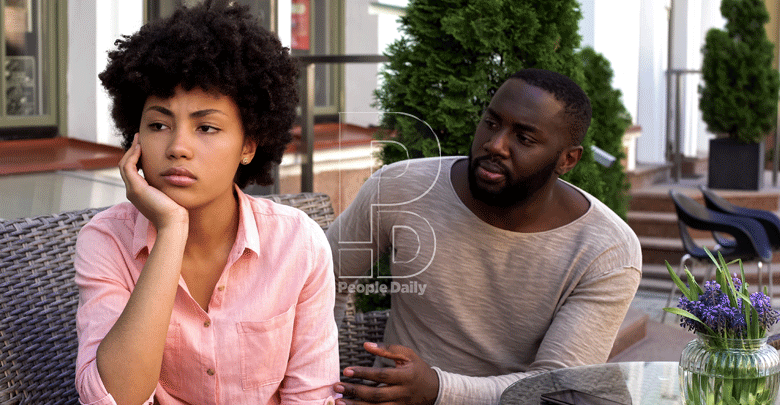Why a child can never disown their parents
By Sandra Wekesa, February 3, 2021Sandra Wekesa @wekesa_sandra
Family is forever, the saying goes. Even when rifts leave members at untenable positions, you still choose family.
In some instances you will try to reconcile differences or work it out. But for some people this is never the case.
Headlines have been replete with international celebrities who have been estranged from their parents, and others have come out to disown theirs.
In Kenya, news about former Machakos senator Johnstone Muthama’s children expressing displeasure at their estranged mother’s decision to vie for the seat their father had occupied circulated all over social media.
In as much as it stirred varied reactions, the question it raised is whether it is normal for children to disown their own parents.
Edward Kamau, a pastor at God’s Grace Ministry says the Bible is clear on obedience of a child to their parent.
“Even though a child might feel pressure of uttering insults to their parent over an issue, children should always remember honouring their parents is the first commandment with a promise,” he says.
He adds that although issues might arise in the family, children should always respect their parents, as this is the only way to invite blessings into their life.
Dr James Kariuki, a lecturer of sociology and social work at the University of Nairobi, says in many family set-up, children are able to tell what happens in a marriage, and might decide to pick a side.
Usually they choose the one they are comfortable with and that has shown support in maintaining sanity.
Raphael Thimba, a Kikuyu elder says this is might be inviting a curse to the family.
“This is regarded as a taboo in most African communities because you cannot choose to fall far from that which is your own. The blood that is in your parents is in you.
There is completely no way a child can wake up and decide to utter insults to their parents.
A parent isn’t you age mate. This is someone who thought of you and has made sure you are living your best life,” he explains.
Sheikh Izudin Alwy Ahmed says the Quran is very clear about the punishment children who utter insults to their parents might get.
“Islam has given parents more power, that is why any form of disrespect and disobedience warrants a great punishment: you should be prepared to pay for your sins here on earth,” he says.
The Sheikh adds that even when it gets to cases where a parent isn’t taking up their responsibility or giving a child the basic needs including love and care, children should still maintain their love towards their parents.
Family foundation
Though it is putatively believed that parents love their children unconditionally and vice versa, empirical evidence has found this is not always the case.
In some scenarios, adult children opt to cease contact with one or both parents.
Prof Salome Bukachi, Associate Professor of Anthropology at the University of Nairobi, says the origin of all this is when the foundation of a family is broken.
“Relationships between parents and children or vice versa are not as strong as they used to be because values that maintained our behaviours are lost.
This resulted to people living as strangers even in their own homes,” she explains.
She adds that even as this broke down family relationships, to some family member, it was a ticket to building hatred between them.
“You would find that a child could easily feel the drift of relationship between them and the parent,” says Bukachi.
To her, this distance has created a vacuum of affection in many families because children tend to feel as if they are competing with everything, hence cultivating indifference in them.
Dr Justus Aungo, a sociologist at University of Nairobi, asserts that while one cannot cut the genetic connection to biological parents, it is possible to disconnect sociologically.
The latter is becoming common in the country as a result of conflicts over property, beliefs, cultural deviance or violence.
He adds that from an African social and cultural standpoint, children have a moral obligation to honour their parent and cannot disown parents, but parents can.
In most cases children simply cut off communication without necessarily disowning parents.
Intense disappointment
Some feeling of intense disappointment, embarrassment or even violence can drive such acts by children.
“Parental violence can be verbal, physical or emotional. It can also include betrayal by the parent, sexual violation and abuse,” he adds.
According to him, parent-child ‘divorce’ is markedly different than other relationships dissolutions.
“Although there may be mixed reactions, the regret process might be different. In some cases, a child might feel comfortable about losing the parent they were not comfortable with.
In others, the experience of being in poor relations with a parent might be too traumatic, leaving them feeling lost and unprepared for the future,” says Aungo.
Dr Kariuki says while it is normal for children to feel the reason for cutting off their parents are valid, the society seems not to understand this.
“Marriage and divorce are common features of break up between children and parents. In divorce cases, children will blame one party over the other, even when it is civil,” he says.
Still, children feel the pressure to be there for their parents even when they really don’t want to. It is good to avoid any form of judgement that might possibly arise.
“For those seeking to reconcile, it is advisable to suspend any judgment that might lead to mismatch of values and beliefs,” he advises.
But even as people will be quick to judge that child who appears to be against one parent, it is high time that people address it as a cry for help from the child.
“It simply means the child is going through something that needs to be sorted before they start to resent their parent,” says Bukachi.
